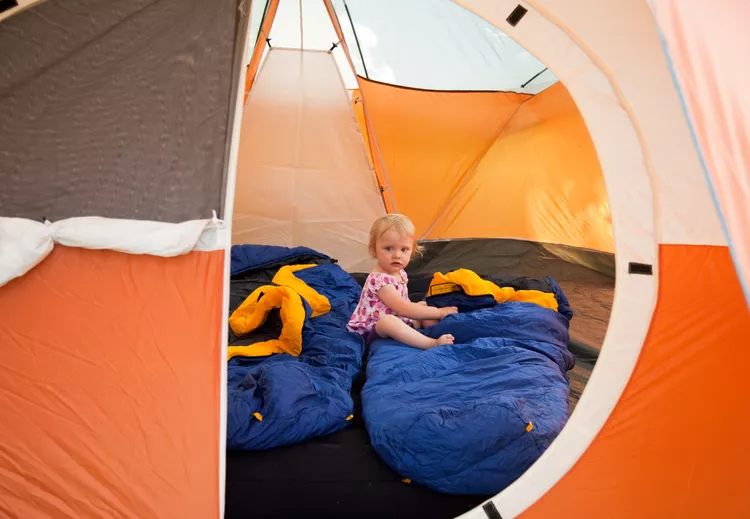For couples who enjoy camping, having a new baby might feel like it means they’ll have to put their outdoor adventures on hold for years until their newborn is old enough to survive a camping trip. However, there are plenty of ways couples can head to the outdoors with their infant children—even at an early age.
There are, however, several aspects to consider before going camping with an infant, and you’ll want to take a few extra precautions to make sure that everyone, even your first-time camper, has a great time safely.
Knowing how young is too young and what you’ll need for your trip to accommodate a small child goes a long way to ensure the whole family enjoys the journey. Knowing when to go camping is especially important for younger campers, as the three most important things to keep in mind are warmth, food, and boundaries.
Preparing for the Outdoors
Before you go on your first camping trip with your infant child, it’s important to get your little one used to the idea of sleeping in a tent outside and away from the luxuries of home. This is particularly important for children who have spent most of their time in a city environment.
You can prepare your kids by pitching a tent in your backyard (or living room) and letting them sleep in it overnight before you venture off to a real camping trip. Allowing your kid to get accustomed to a sleeping bag (or portable “crib”) before you go can help your child sleep through the night while in the wilderness.
You should also make sure you have everything you’ll need to ensure that you and your family have a safe, fun, and relaxing vacation. After all, camping is supposed to be a relaxing and enjoyable experience. You don’t have to be afraid of taking your infant on a camping trip, as long as you follow a few precautions and guidelines for camping with children.
Packing for Infant Campers
There’s nothing like the memories you make on a family camping trip, so don’t let nature scare you out of a great experience—just come prepared.
Along with essential items you can find on any camping checklist, such as a tent and sleeping bags, you’ll also need to bring the right gear and supplies to keep your baby happy on your camping trip. Consequently, bringing along an extra “play tent” can help keep your shared “family tent” cleaner.
Baby necessities start with a blanket, stuffed animal, a favorite toy, and plenty of long-sleeved shirts and pants to keep the bugs off sensitive skin. The list can also include an infant carrier, stroller, and a portable playpen. Moreover, if you want to take a weekend-long camping trip and plan on bathing your infant, a plastic tote makes for a great portable bath basin.
Another thing to keep in mind with infants and toddlers is that you’ll have to bring extra diapers—and a way to dispose of them. Some campsites will have dumpsters or garbage cans, but others might require that you pack all of your trash out with you. If that’s the case, make sure you have smell-proof containers for used diapers.
Setting Boundaries and Rules
As your kids get older, you’ll also want to bring coloring books and other books about the area that you can read together. You’ll also want to set boundaries and rules to make sure your growing child doesn’t wander too far away from camp and get lost.
Although it’s not necessarily dangerous to take your younger children camping, it’s important to communicate how dangerous nature can be, especially for infants and toddlers. Along with bringing portable playpens and keeping an eye on your infant, you should also let him or her know where it’s safe to go and where it’s not.
Along with safety rules, you should also maintain a normal routine with small children to reduce crankiness and tantrums. Therefore, even though camping can be quite relaxing for adults, kids still need to take naps and eat meals on their regular schedule to avoid becoming over-tired, hungry, and ultimately moody.





